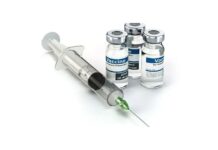Canada’s drug regulator asked Pfizer to provide data on the size of DNA fragments in its COVID-19 vaccine, due to genomic integration concerns, shortly after learning the pharma giant withheld information on DNA sequences contained in its product.
“Concerning the residual plasmid DNA in the drug substance, provide data/information characterizing […] the size distribution of the residual DNA fragments [and] residual intact circular plasmid,” says a request for clarification Health Canada issued to Pfizer on Aug. 4, 2023.
The information was released as part of records obtained through an access-to-information request. It shows, in part, that a Health Canada official was keeping the department’s counterparts in the United States and Europe apprised of the department’s interactions with Pfizer, in a bid to harmonize the regulators’ approaches regarding the recently discovered DNA fragment impurities.
“As you are aware, the fragment size is related to the probability of integration, and the WHO guidance assumes a fragment size of generally less than 200 bp,” Dr. Dean Smith, a senior scientific evaluator in Health Canada’s Vaccine Quality Division, wrote in an October 2023 email to counterparts at the U.S. Food and Drug Administration (FDA) and the European Medicines Agency (EMA).
DNA plasmids are used in the manufacturing process of mRNA vaccines and residual elements are supposed to be cleaned out below a certain threshold. Pfizer said DNA in its products is below the 10ng/dose guideline established by the World Health Organization (WHO) and followed by Health Canada, according to the official records.
This assertion has been challenged by independent scientists, who found quantities of DNA in the vaccines to be above the threshold. They have also found the DNA fragments are larger than 200 base pairs (bp).
Virologist Dr. David Speicher, who has studied Canadian mRNA vials, told The Epoch Times the average size of fragments his study found is 214 base pairs (bp), with some as large as 3.5 kilobase (kb).
While small fragments frequently integrate spontaneously into the genome, these mutations are stopped through either DNA repair mechanisms or cellular death, Dr. Speicher said.















































